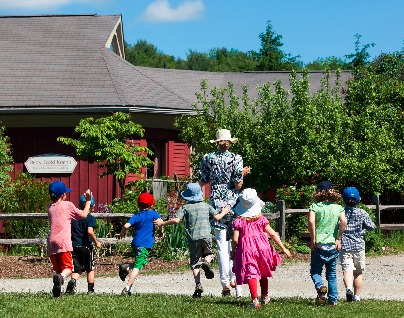We know that education is more than the acquisition of information, rigid academic curricula, and high stakes testing. In fact, the world is changing so rapidly that no one can really predict what information our children will need to know in the future. However, it is clear that intellectual flexibility, creative thinking, independent judgment, moral discernment, refined written and oral communication skills, and the ability to collaborate effectively will be essential to success in today’s ever changing, global community. The Waldorf curriculum, pedagogy, and teaching methods are designed to nurture these capacities and more.

It is the goal of a Waldorf teacher to cultivate a sense of wonder and to inspire children to view the world, even in its most basic form, as magnificent—prompting each student to embrace life with enthusiasm, initiative, and purpose. These aims are met through an education that is rich with meaningful sense experiences, classical academics, and artistic beauty in all subject matters.
Whether our graduates become doctors, scientists, artists or musicians, the capacities developed through a Waldorf Education provide them with a foundation for success in whatever field they pursue. Professors in various academic disciplines and in a wide range of colleges and universities who have had Waldorf graduates as students corroborate this. They note that Waldorf graduates have the ability to integrate thinking, to assimilate information as opposed to memorizing isolated facts, are willing to take intellectual risks, and are leaders who take initiative.